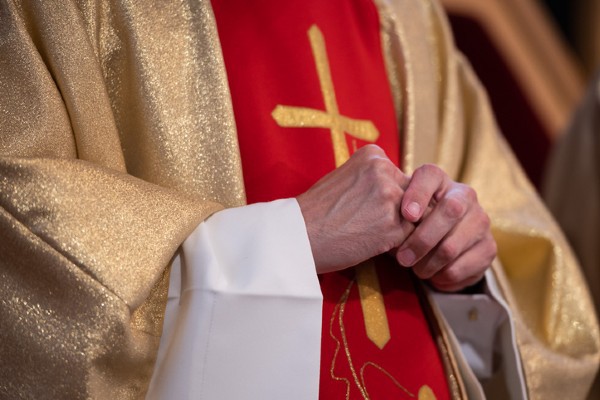
Why Bankruptcy Law Allows Chapter 11 Protection From Sex Abuse Claims
The Roman Catholic Diocese of Ogdensburg, New York, filed Chapter 11 bankruptcy on July 17, 2023, the latest Catholic diocese to do so. New York dioceses face hundreds of sexual abuse lawsuits filed under the state’s Child Victims Act, which temporarily enabled victims of childhood sexual abuse to sue over decades-old crimes. Other dioceses across the country, along with organizations such as the Boy Scouts of America and USA Gymnastics, have used the bankruptcy strategy in response to growing numbers of sex abuse claims.
A 1978 overhaul of bankruptcy law enables otherwise solvent organizations to seek Chapter 11 protection amid unproven mass tort claims. Proponents of this strategy say it protects abuse survivors from the slow and unpredictable process of civil lawsuits. Opponents say it delays and reduces compensation, and denies the victims justice.
Tort Claims in Bankruptcy
Bankruptcy courts have long been called courts of equity, given that they balance competing economic and social interests. However, American bankruptcy courts are creatures of statute. Congress dictates how the competing interests are to be balanced.
Chapter 11 bankruptcy is designed to help organizations restructure so that they can remain operational in the face of debilitating debt. The goal is to determine how much creditors will be paid and how much interest shareholders will retain. In terms of equities, it attempts to balance payment to creditors with maintaining a viable organization that retains its employees and produces a return for shareholders.
The original Bankruptcy Act of 1898 focused only on contractual obligations, not tort claims. The Chandler Act of 1938 brought tort claims under the bankruptcy court’s purview to help companies avoid a forced sale of their assets. The Bankruptcy Reform Act of 1978 allowed organizations to file for Chapter 11 reorganization even if solvent, enabling them to seek the court’s protection for future liability.
The Rise of Sex Abuse Claims
In 2002, the International Society of Krishna Consciousness became the first organization to file Chapter 11 reorganization based on sex abuse claims. The Hindu sect faced a $400 million lawsuit claiming sexual and emotional abuse of Hare Krishna boarding school students in the 1970s and 1980s. The bankruptcy court ultimately approved the sect’s reorganization plan, which included the creation of a multimillion-dollar fund for abuse victims.
Since then, some have filed bankruptcy due to sex abuse scandals. The number has increased in recent years thanks to laws that temporarily suspend the statute of limitations for sex abuse claims. Twenty-three states, two U.S. territories, and Washington, D.C., have passed such laws, enabling victims in decades-old cases to seek compensation.
From 2004 to 2018, Catholic dioceses paid almost $900 million to more than 2,800 sex abuse victims across 16 bankruptcy cases. Most cases filed since 2018 remain pending. For example, the Diocese of Rockville Centre filed Chapter 11 bankruptcy on October 1, 2020, facing more than 600 claims, 223 of which are pending.
How Bankruptcy Treats Sex Abuse Claims
When a debtor organization files a petition for Chapter 11 reorganization, a stay of creditor actions against the debtor goes into effect automatically. Sex abuse claimants are immediately prohibited from pursuing their cases in court, filing new claims, or recovering judgments. Victims cannot conduct discovery to determine the extent of the organization’s involvement in the abuse or any cover-up.
In bankruptcy, debts are classified as secured or unsecured, with unsecured debts further divided into priority and nonpriority. The claims of sex abuse victims are nonpriority, general, unsecured claims. They are paid after all secured and priority unsecured claims are satisfied. Proponents claim that the bankruptcy process ensures that each victim receives just compensation, eliminating the “race to the courthouse” in which first-filed claims take most of the compensation. However, victims generally receive far less in bankruptcy court than they would have in regular court proceedings.
Furthermore, “substantially similar” claims are grouped into classes, and all claims within a class are treated equally. Sex abuse claimants are often lumped into one class, transforming highly individual cases into mass torts. However, the creditor committee representing abuse victims can play a powerful role in negotiating the debtor’s proposed reorganization plan.
Justice Served?
The bankruptcy process can be difficult for survivors of sex abuse. Many view litigation as an opportunity to gain closure and ensure that the organization’s employees never harm another person. In bankruptcy proceedings, they are treated as creditors rather than victims. Unlike other creditors, victims want to hold the organization accountable. They lose the opportunity to tell their individual stories and expose the organization’s misdeeds.
A survivor has the option to postpone litigation until the bankruptcy proceedings are finalized. However, this can take years, forcing the victim to relive the trauma longer. Evidence may be lost and witnesses or even the victim may die. As a result, many victims choose to take a bankruptcy settlement in order to get on with their lives.
Bankruptcy court is ill-suited to handle sex abuse claims. The objective of bankruptcy is to allow the debtor to gain control over their finances and make a fresh start. These goals are in conflict with the aims of victims who want justice as well as financial compensation. Bankruptcy courts should take steps to ensure that victims’ voices are heard and that organizations don’t use bankruptcy to prevent investigations into the abuse.
Learn More About New Developments in Law
Stay up to date on the most current legal developments in California and the rest of the nation with Purdue Global Law School.
Purdue Global Law School offers an online Juris Doctor if you wish to become an attorney licensed in California. If you wish to advance your legal education but do not intend to become a practicing attorney, you may consider an online Executive Juris Doctor.
Single law courses are also available to help you explore a particular area of law without committing to a full degree program. Request more information today.

